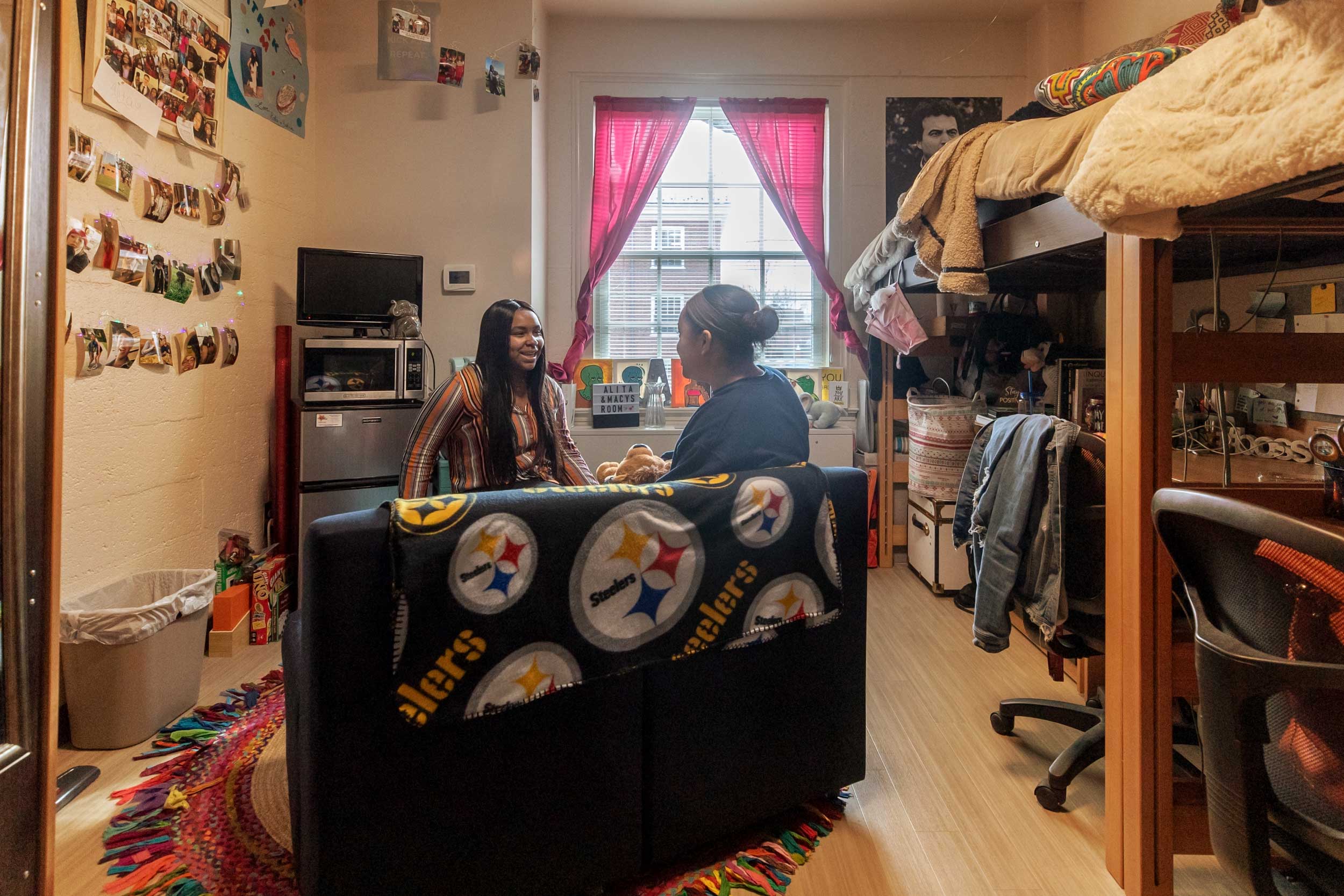Here’s what she had to offer.
The First Impression Matters
To make a great first impression with your roommate, you should approach it in two ways: being proactive and staying positive.
If you haven’t already connected with your roommate, consider sending a message to exchange contact information before move-in day. “The earlier you break the ice, the better,” Wood said.
Coordinate dorm items and appliances with your roommate to share and maximize your small space, working together toward creating a comfortable living environment.
Has your first-year roommate from UVA become a lifelong friend? Share your story with UVA Today by emailing uvasocial@virginia.edu for a chance to be featured in an upcoming story.
“People tend to feel like they have something in common with someone if they share a sense of purpose,” Wood said. “You can cultivate that sense of purpose by doing activities related to the shared goal of creating a nice living space.”
The true first impression happens on move-in day when you spend time alone with your roommate, likely for the first time. According to Wood, first impressions are crucial.
“If you can grab a relaxed moment just to have those first conversations or two, to just get to know each other, that initial impression could really set you on a positive foot,” Wood said.
Worried about making a good first impression? The key, Wood says, is to approach your new roommate relationship with a positive attitude.
“Going into the year with positive expectations will create a positive feedback loop,” Wood said. “If you are optimistic that the relationship is going to go well, you’ll enter the conversation with your roommate with an open and curious mindset.
“That will make (your roommate) think positively about you. It becomes a feedback loop.”
Don’t Wait To Establish Clear Boundaries
To prevent future conflicts, Wood says a casual conversation about expectations can go a long way.
Wood suggests writing down your priorities regarding your living space. Consider topics like your bedtime, pet peeves and how tidy you like to keep your environment. If you find your priorities clash, determine a compromise that allows both of you to work toward meeting each other’s needs.
“I think that list needs to be co-created, and by the end of it, should be a 50/50 reflection of both your needs and priorities,” Wood said.
While your resident adviser may instigate this conversation, it’s important to approach it thoughtfully and use it as an opportunity to establish a cheerful living arrangement. Addressing potential qualms early can help prevent more intense conflicts later.
Address Conflict Face-To-Face
On the topic of conflict, when sharing a small living space with another individual, conflict is bound to arise. Knowing how to address conflict head-on can make all the difference in maintaining an amicable living environment.
A study found that the three most common sources of disagreements among undergraduate roommates are uncompleted household chores, general misunderstandings and a sense of privacy invasion.
According to Wood, direct communication can solve each of the three most common sources of disagreements within roommate relationships.
“Misunderstandings arise when we assume we know the reasons for another person’s behavior. And often we do not,” Wood said. “That’s why communication is so important.”
In today’s digital age, communication often happens through text, but messages can easily be misinterpreted or misunderstood. While face-to-face confrontation might seem intimidating, it can lead to quicker and more effective problem-solving.
“It’s very easy to text someone to avoid the awkwardness of saying in front of their face, but that can get misconstrued really easily,” Wood said.
When disagreements occur, review the boundaries you established at the start of the semester while thinking about how you can more effectively accommodate one another’s needs.
Have a burning question for our crack team of UVA historians, experts, students and staff to answer? Send your queries to HoosAsking@virginia.edu.







